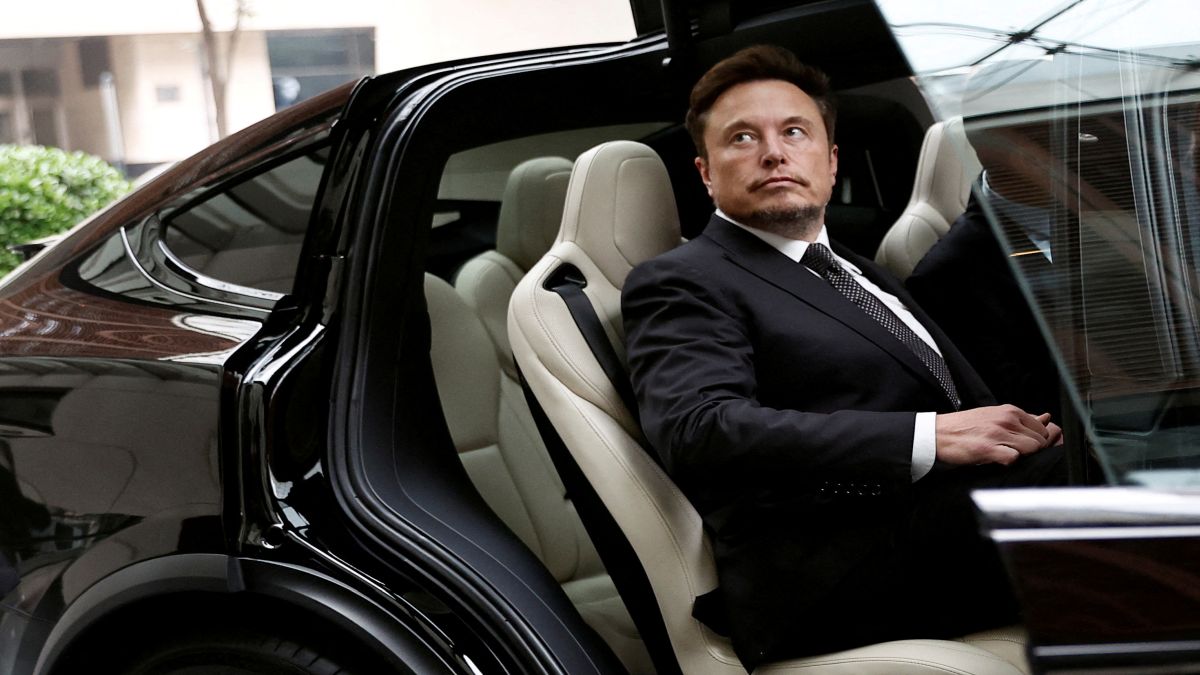When one thinks of electric vehicles, one normally thinks of Tesla. However, the Elon Musk-led company has hit a speed bump, posting its first annual drop in sales since the first year of the COVID-19 pandemic.
We investigate the reasons behind the Austin-based company’s dip in sales — from competition from Chinese and Western automakers to Elon Musk’s antics.
Tesla sales dip
On Tuesday (2 April), Elon Musk’s electric car company, Tesla stated that it delivered 3,86,810 vehicles from January through March — nine per cent below the 4,23,000 it sold during the same period last year.
Wall Street had estimated that the company would deliver 457,000 EVs for the first quarter, according to a consensus tracked by FactSet. In fact, Deutsche Bank’s Emmanuel Rosner, as per a Quartz report, trimmed his delivery forecast last week from 427,000 units to 414,000 units and cut full-year expectations from 2.06 million units to 1.9 million units. Morgan Stanley’s Adam Jonas lowered his delivery estimate from 469,000 units to 425,000 units.
According to Tesla’s sales statement, it sold 3,69,784 Model 3 compact cars and Model Y SUVs between January and March, and 17,027 other EVs.
Also read: Is China falling out of love with Apple and Tesla?Quartz further reported that Tesla’s sales for the quarter fell more than eight per cent compared to a year earlier.
Following the news, the Elon Musk-led company’s shares fell more than seven per cent in early trading following the news. In fact, Tesla’s shares have already fallen 30 per cent this year, making it the worst performer in the S&P 500.
Impact Shorts
More ShortsCompetition taking a bite out of Tesla
Electric vehicles have struggled industrywide, and Elon Musk’s automaker is no exception to economic forces. In China, the world’s biggest automotive market, Tesla is facing off against strong local rivals like BYD and newcomers like Xiaomi. In fact, BYD’s EV sales were up 13 per cent compared to the year earlier period.
Tesla is facing new competition from legacy automakers in western countries as well, most of which are introducing new EV models as they move forward with plans to shift from traditional internal combustion engine vehicles to electrics.
Also read: Beds, army of drones, in-built kitchens: Chinese EV makers are offering bizarre extras to customers
CNN reported that Toyota’s pure EV sales for the first two months of year were up by 61 per cent — a still modest 14,504 vehicles.
Dan Ives, analyst with Wedbush Securities was quoted as saying, “We view this as a seminal moment in the Tesla story for Musk to either turn this around and reverse the black eye first quarter performance. Otherwise, some darker days could clearly be ahead that could disrupt the long-term Tesla narrative.”
Elon Musk’s antics to blame
While some analysts believe that it’s competition and the current supply chain issues hampering sales, there are some who note that it might be the company’s chief who is putting off potential customers.
A survey from market intelligence firm Caliber revealed that Tesla’s prospective buyer pool in the United States is dwindling in part because of CEO Elon Musk’s polarising image. Tesla’s consideration score fell eight percentage points from January alone. Caliber CEO Shahar Silbershatz told Reuters, “It’s very likely that Musk himself is contributing to the reputational downfall.”
In fact, in recent times, the billionaire has courted several controversies — especially on matters of anti-Semitism and transphobia . He has also endorsed several right-wing conspiracy theories on his platform X, which experts note would alienate many of the left-leaning customers who are most likely to buy electric cars.
For instance, on 16 November 2023, the Tesla chief agreed with a post that falsely claimed Jewish people were stoking hatred against white people. He later admitted that the post was “foolish of me”.
Yet again in the same month, he also was accused of promoting a long-debunked conspiracy theory which alleged high-profile Democrats ran a paedophile abuse ring from a Washington pizza restaurant .
And it is instances like these and many more that has led to Musk’s reputation taking a fall, according to brand valuation consultancy Brand Finance. Another survey by consumer analytics firm CivicScience reported to Reuters that 42 per cent of respondents had an unfavourable view of Musk in February, up from 34 per cent in April 2022.
This was also echoed by Ed Kim, president of California-based consultancy AutoPacific said. In a Reuters report, he was quoted as saying: “A modest but growing number of EV shoppers are increasingly put off by Elon Musk’s behaviour and politics and are now finding viable alternatives to Tesla in the marketplace.”
Tesla investor Ross Gerber noted the same. On X, he wrote, “Basically Tesla can’t sell its cars due to Elon’s behaviour. Let’s stop blaming the Houthi rebels or German environmental terrorists. Or a recession that never came. Or interest rates. Only one person responsible for this.”
But there are still many who remain loyal to Tesla and Elon Musk. For instance, Christian Cook, a Tesla Model 3 owner in Texas who identified as leaning right, told Reuters Musk’s actions made no difference and that he was “becoming numb to the shenanigans”.
Tesla’s future
Musk hasn’t commented on the matter for now. Furthermore, he hasn’t given a clear indication of how the company plans to regain momentum. Some suggest that the company would announce further price cuts. However, this would squeeze the profit margins of the company.
With inputs from agencies
)